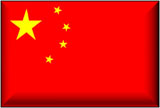Your PARTNER to CHINA : invest China, business China, consulting China, investment China, internationalization SME China
China approves the twelfth five-year plan
Aprile, 2011The Chinese parliament has approved the twelfth five-year plan of economic and social development. It deals primarily economic issues, with special attention to inflation, the improvement of living conditions, respect for the environment and fighting corruption.
The Chinese Parliament has approved, at its annual meeting, the twelfth five-year plan of economic and social development. The main aspects of the plan were outlined during a press conference held by Premier Wen Jiabao. The plan pays particular attention to the improvement of living conditions and environmental protection: up to 2015, the leaders of the second world economy will promote a development more based on quality than quantity, to build a more balanced economy, which narrows the gaps in the distribution of wealth. The Government also aims to reduce the number of people living in poverty: for that purpose, the plan provides, inter alia, measures to create 45 million jobs in urban areas. On the subject of the environment, the plan confirms the objective, to be pursued by the end of next year, of the reduction of 20%, compared to 2005, emissions by the most polluting factories.
“We must prepare ourselves to changes, to adjust the economic structures and dealing in more adequately the problems that have existed for a long time, due to the lack of balance, poor coordination and sustainability, so that economic development is suitable to our population, our environment and our resources.”
China appears determined to transform its model of development, traditionally included in a strategy of economic growth that can be called "export-oriented": the country, from the late 70s, had begun, in fact, to identify the sales in outside markets as the preferred destination of its output. Today, the country wants, instead, enhance the domestic demand that, according to the numbers of the population, can become the strength of the national economy. The plan deals, primarily, economic issues, without forgetting also notes relevant to politics, both domestic and international, referring in particular to the problem of the impact of developments in West Asia and North Africa, which is causing an exceptional increase in oil prices . Wen Jiabao has, therefore, focused on China's problems: the main ones, inflation and corruption. Regarding the first aspect, the premier stressed that China is facing a structural inflation due to higher labor costs and rising prices of basic necessities; added to this, the impact of international economic affairs on inflation. Speaking of corruption, Wen Jiabao highlighted the need to implement, with appropriate reforms, a restructuring policy that limits what he calls "the greatest threat to the country". .
Services
Our extensive network allows us to give a full set of consulting services to invest in China. We provide assistance for the internationalization of the SME in China for:
About Us
Our consulting company supports every business phase for client who want to invest in China, thanks to our professional people and extensive Chinese network, also called "Guanxi". It allows the company (SME in particular) to minimize risks and disappointments when doing business in China.





